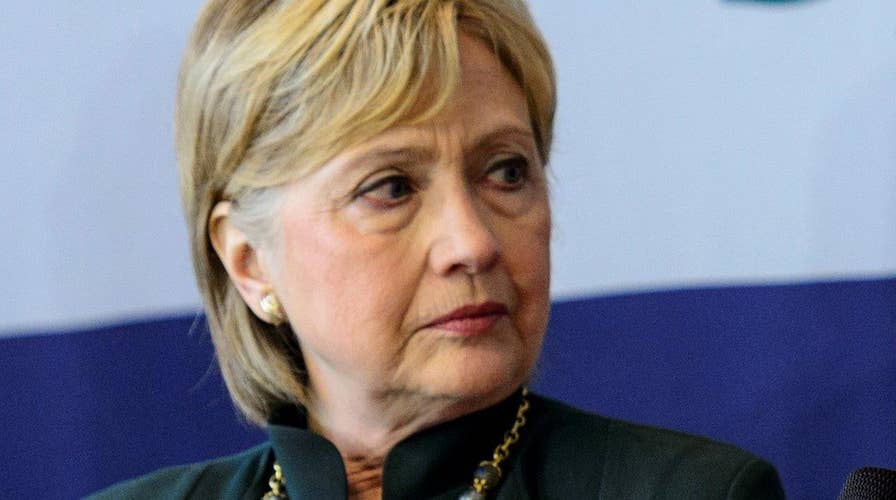Clinton still looking to shut down her Democratic rival
Senior political correspondent Mike Emanuel reports from Oakland, California
The Democratic Party in Guam said Saturday that Hillary Clinton won its primary, taking 60 percent of the vote to earn four of the seven delegates at stake.
Vermont Sen. Bernie Sanders picked up the other three delegates.
The Pacific island is one of five U.S. territories that casts votes in primaries and caucuses to decide the nominee, though those residents aren't eligible to vote in November.
Guam is often overlooked in the presidential election cycle. But this year, the territory drew attention from both the presidential candidates, who ran radio advertisements in a bid to scoop up any possible delegate in the final stretch of primaries and caucuses.
Combined with some delegate gains this weekend in Washington state, which held its primary in March, Clinton now has 94 percent of the 2,383 delegates needed to clinch the nomination as she seeks to look ahead to a November matchup against Republican Donald Trump.
Trump became his party’s presumptive presidential nominee with a decisive win Tuesday in the Indiana primary that knocked out rivals Texas Sen. Ted Cruz and Ohio Gov. John Kasich.
Sanders has said he will take his delegate fight to the floor of the Democratic National Convention in Philadelphia in July.
Clinton now has 26 wins this primary season, compared to 19 for Sanders.
Based on primaries and caucuses to date, Clinton now has 1,706 delegates while Sanders has 1,414 -- or a lead of 292 delegates, according to the AP count.
If Sanders hopes to overtake her based on just those primary and caucus delegates, he still must win 66 percent of the remaining delegates -- a figure unchanged from before.
Clinton's lead is bigger when including superdelegates -- party officials who can support any candidate.
She now has a total of 2,229 delegates, or 94 percent of the 2,383 delegates needed to win. Sanders has 1,453.
Just 154 delegates short, Clinton remains on track to clinch the nomination early next month.
The Associated Press contributed to this report.













































